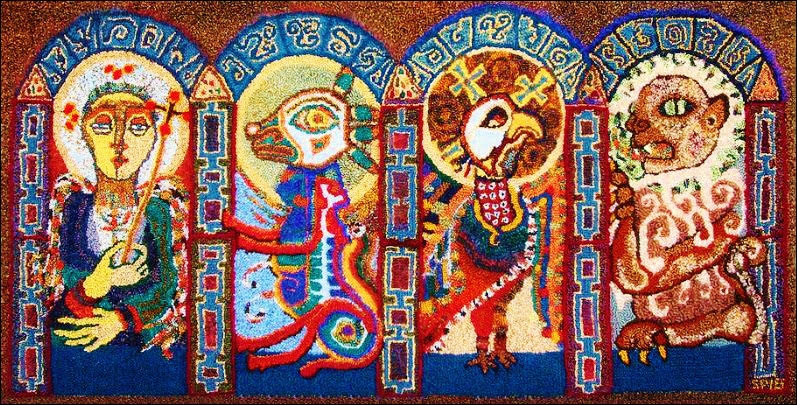A long overdue posting of Claudine's response to Ozair on this subject
Dear Ozair,
My name is Claudine. A long time ago (3½ years!) Scott Cherry shared with me some of his fascinating correspondence with you about a few passages in the Old Testament books of Moses (and the Qur'an) that were stimulating intense discussion. Well, way back then I wrote this letter for you but Scott chose not to post it until now, especially focused on Deuteronomy 22:28-29.[1]
I understand your difficulty with those bible passages because like many, I share in some of your thoughts. I thought that you may like to hear from a Christian woman on the issue of what seemed to you as rape and pedophilia in the Old Testament.
Nothing can be understood if we don’t understand the beginning: In the beginning...God’s creation was perfect, but a big problem happened: Man disobeyed God. Man decided to listen and trust another voice than that of his creator even though God had warned him it would lead to death. Every other problem humanity has ever experienced stems from that.
A Critical Review of Sayed Modarresi's Book
Recently I read a short book called The Lost Testament: What Christians Don’t Know About Christ, by Sayed Mahdi Modarresi. It’s a provocative title. It was loaned to me by a dear Muslim neighbor who wanted me to read it, so I did. Out of respect for her, and from a desire to compile my reactions to the author’s main argument and sub-points, I decided to write this review. In general, I love the idea of a book esteeming the words of Jesus, which is captured so beautifully by these words on the back cover.
“The Words of Christ are so exquisite they make Aristotle seem sophomoric. His proclamations against corruption and injustice are so zealous, a million Ghandis would kneel down before him. His erudition is so profound, it is divinely inspired verses, not mere creations of the mind of a man that he was.” (p. 20)
As a Christian, I couldn’t agree more. Unfortunately, my agreement doesn't go much further. Despite Modarresi's apparent reverence for Jesus, he is the Jesus of Islam, not of Christianity. This book is actually a polemic against the Bible.
A Brief Perspective on the Third Gospel in the New Testament
by Shane Rife—
| From the very beginning of his Gospel, Luke communicates a very professional demeanor. He was out to collect facts to thoroughly establish just what went down during the time Jesus was among us. Also, there are reasons to believe that Luke intended to aim his work at all people groups, with more than just a traditional Jewish audience in mind[1]. But beyond that, his Gospel is almost cinematic, communicating feelings through action. Luke communicates the powerful drama of the stories through establishing the scene, then depicting the vivid body language and memorable dialogue of the characters. |
|
|
The Sum of the Parts: Not only did Jesus DO miracles, he WAS the miracle.
It has been said that the test of a person’s greatness is their use or abuse of power. On this score how did Jesus fair, we may ask?
The four gospels’ collective portrait of Jesus is not just that he was a doer of miracles, but that he was himself a miracle. In all of world history, never has there been any other historical figure to whom so many miracles have been attributed, from birth to death—nay, even beyond death. Never another historical figure to whom so much other-worldly power has been ascribed—power over disease and disability, power over nature, power over demonic forces, power over discourse, and power over death itself. In conjunction, never has there been an historical figure to whom so much humanitarian goodness has been attributed. Power and goodness.

How variants in the canonical gospels prove they were not redacted.
The Bible’s four canonical gospels are the world’s best information for the person and work of Jesus, bar none. That is my position that is shared by a great many scholars, past and present. And yet there is an apparent problem with several facets: 1) Why are there four? 2) Why are the first three gospels—so called the synoptics (Matthew, Mark, Luke)—so similar to each other yet so different from the fourth (John)? 3) Why do even they have so many differences among them, some of which look like contradictions? And 4) Why do they have so many similarities among them, including even identical material? ...If the early church community had been predisposed to redaction ('super-editing') they could have thoroughly redacted the gospels to edit out all the discrepancies, especially any bonafide contradictions. Almost certainly, if there had been a Master Editor or, say, a Master Board of Redaction for the New Testament, they would have done so. It would have been in their better interests because the presence of variants and apparent discrepancies is inconvenient at best. But they did not. That they did not strongly suggests that their primary interests were authenticity and truth.